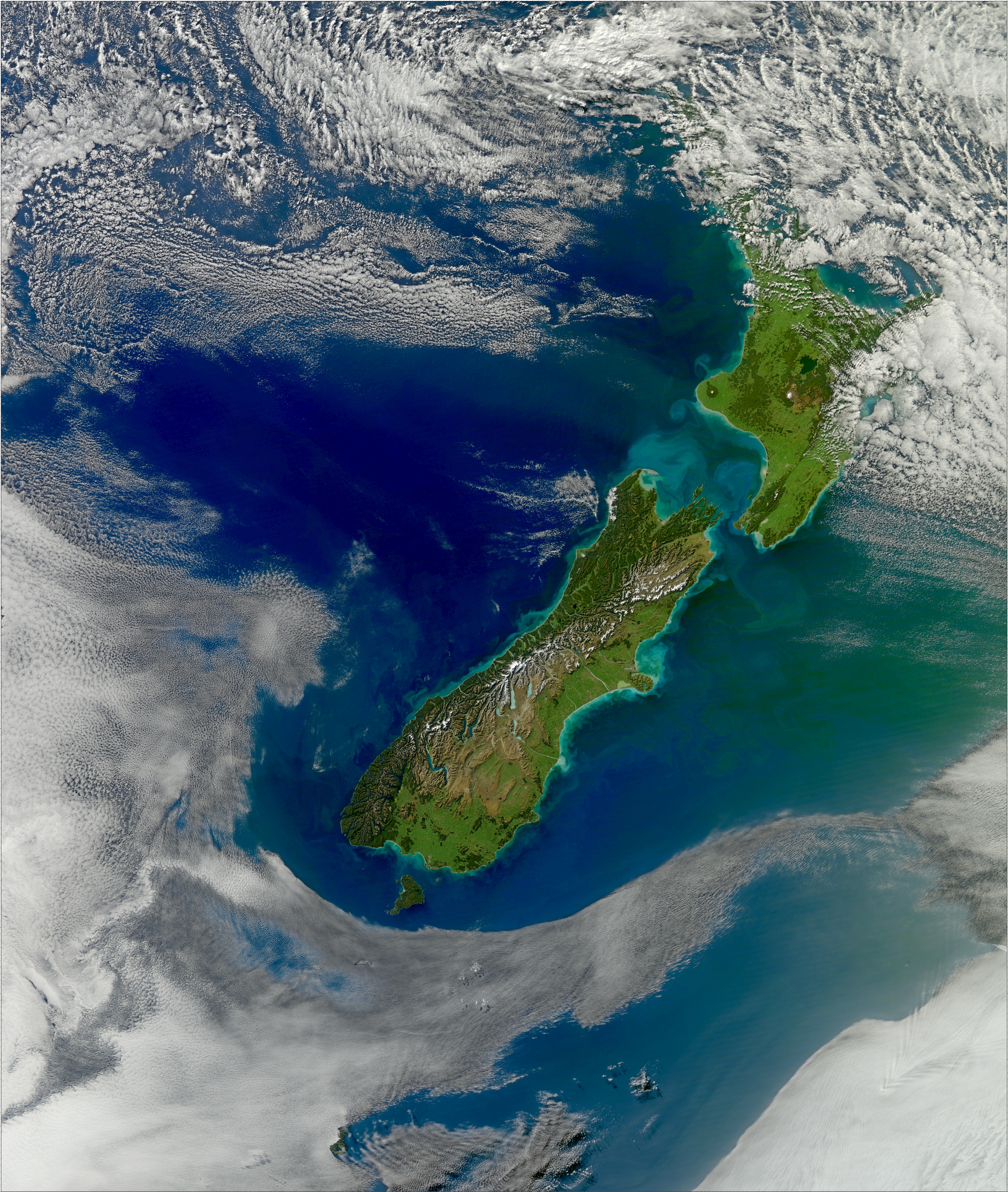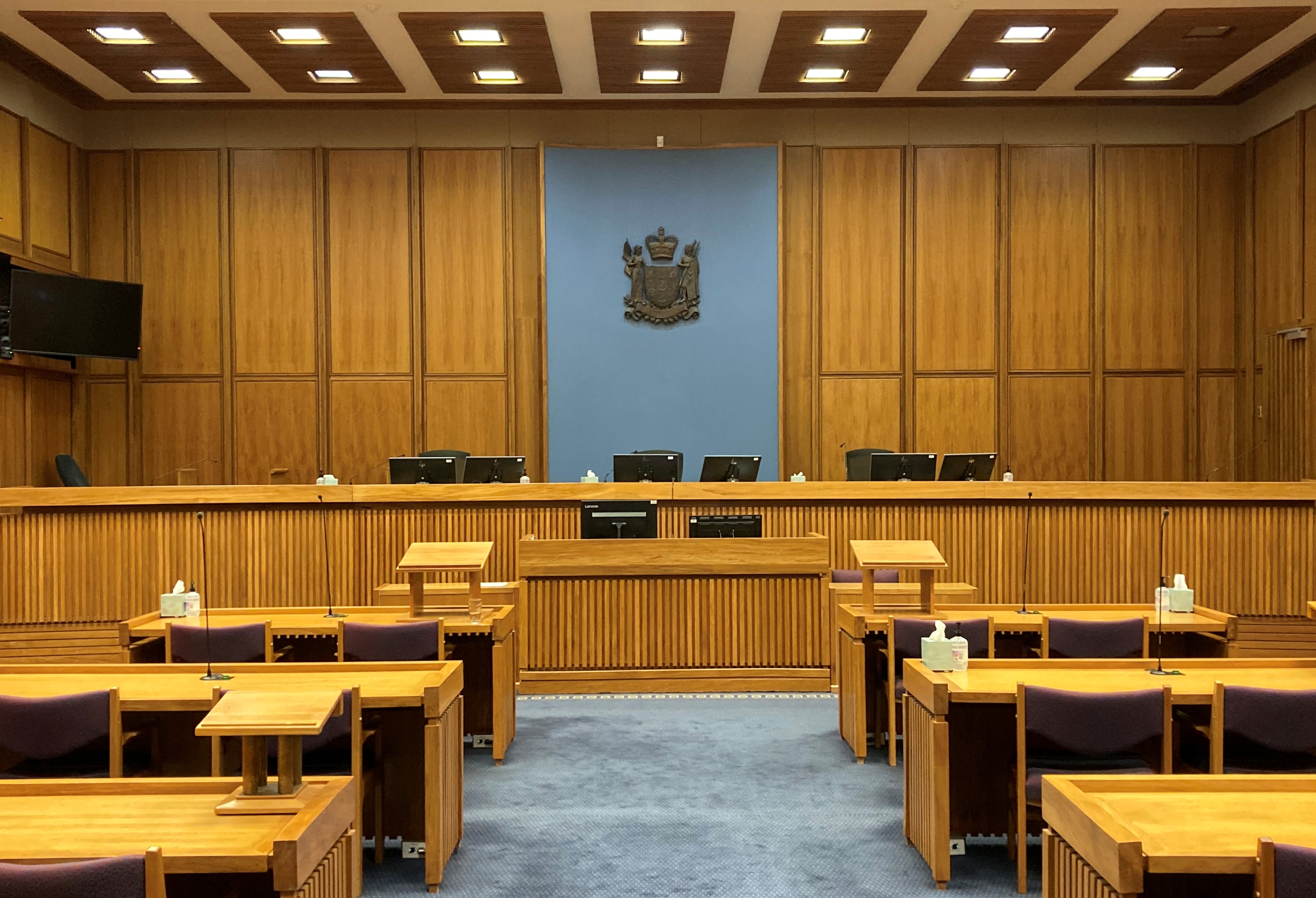|
National Development Act 1979
The National Development Act 1979 was an Act of Parliament in New Zealand. It was a controversial Act and was repealed by the National Development Act Repeal Act 1986. Background To help speed up the Think Big initiative, the Third National Government of New Zealand passed the National Development Act in December 1979. The act, according to supporters, allowed the government to plan and act decisively and 'cut through red tape' to enable development. However, there was significance resistance to the act with concerns around the speed, secrecy and lack of public consultation. More particularly there was opposition to the lack of environmental safeguards for the utilisation of natural resources. The opposition to the act was led by the Coalition for Open Government which had been formed by Sir Guy Powles, the former Chief Ombudsman of New Zealand. There were 341 public submissions on the act and only 5 endorsed the act with all others being opposed. The Minister for National Dev ... [...More Info...] [...Related Items...] OR: [Wikipedia] [Google] [Baidu] |
New Zealand Parliament
The New Zealand Parliament ( mi, Pāremata Aotearoa) is the unicameral legislature of New Zealand, consisting of the King of New Zealand ( King-in-Parliament) and the New Zealand House of Representatives. The King is usually represented by his governor-general. Before 1951, there was an upper chamber, the New Zealand Legislative Council. The New Zealand Parliament was established in 1854 and is one of the oldest continuously functioning legislatures in the world. It has met in Wellington, the capital of New Zealand, since 1865. The House of Representatives normally consists of 120 members of Parliament (MPs), though sometimes more due to overhang seats. There are 72 MPs elected directly in electorates while the remainder of seats are assigned to list MPs based on each party's share of the total party vote. Māori were represented in Parliament from 1867, and in 1893 women gained the vote. Although elections can be called early, each three years Parliament is dissolved and ... [...More Info...] [...Related Items...] OR: [Wikipedia] [Google] [Baidu] |
Robert Muldoon
Sir Robert David Muldoon (; 25 September 19215 August 1992) was a New Zealand politician who served as the 31st Prime Minister of New Zealand, from 1975 to 1984, while leader of the National Party. Serving as a corporal and sergeant in the army in the Second World War, Muldoon completed his training as an accountant and returned to New Zealand as its first fully qualified cost accountant. He was first elected to the House of Representatives at the 1960 general election as the Member of Parliament (MP) for Tamaki, representing the National Party. In this time of political stability, Muldoon served successively as Minister of Tourism (1967), Minister of Finance (1967–1972), and Deputy Prime Minister (1972). Over this time he built up an informal but solid backing amongst National's mostly rural right faction, which he labelled "Rob's Mob"—possibly in imitation of gangs such as the Mongrel Mob. National were then expelled from office in 1972, beginning the tenure of La ... [...More Info...] [...Related Items...] OR: [Wikipedia] [Google] [Baidu] |
Statutes Of New Zealand
A statute is a formal written enactment of a legislative authority that governs the legal entities of a city, state, or country by way of consent. Typically, statutes command or prohibit something, or declare policy. Statutes are rules made by legislative bodies; they are distinguished from case law or precedent, which is decided by courts, and regulations issued by government agencies. Publication and organization In virtually all countries, newly enacted statutes are published and distributed so that everyone can look up the statutory law. This can be done in the form of a government gazette which may include other kinds of legal notices released by the government, or in the form of a series of books whose content is limited to legislative acts. In either form, statutes are traditionally published in chronological order based on date of enactment. A universal problem encountered by lawmakers throughout human history is how to organize published statutes. Such publications ha ... [...More Info...] [...Related Items...] OR: [Wikipedia] [Google] [Baidu] |
Environment Of New Zealand
The environment of New Zealand is characterised by an endemic flora and fauna which has evolved in near isolation from the rest of the world. The main islands of New Zealand span two biomes, temperate and subtropical, complicated by large mountainous areas above the tree line.Walter, H. & Breckle, S-W. (2002). ''Walter's Vegetation of the Earth: The Ecological Systems of the Geo-Biosphere''. New York: Springer-Verlag, p. 86 There are also New Zealand Subantarctic Islands, numerous smaller islands which extend into the subantarctic. The prevailing weather systems bring significantly more rain to the west of the country. New Zealand's territorial waters cover a much larger area than its landmass and extend over the continental shelf and abyssal plateau in the South Pacific Ocean, Tasman Sea and Southern ocean. Historically having an isolated and endemic ecosystem far into modernity, the arrival of Polynesians about 1300 AD and then later European settlers began to have significa ... [...More Info...] [...Related Items...] OR: [Wikipedia] [Google] [Baidu] |
List Of Statutes Of New Zealand
This article gives lists of New Zealand statute A statute is a formal written enactment of a legislative authority that governs the legal entities of a city, state, or country by way of consent. Typically, statutes command or prohibit something, or declare policy. Statutes are rules made by le ...s sorted by government. Chronological list of governments of New Zealand References External links New Zealand Legislation Parliamentary Counsel Office {{DEFAULTSORT:Statutes of New Zealand New Zealand law-related lists ... [...More Info...] [...Related Items...] OR: [Wikipedia] [Google] [Baidu] |
Marilyn Waring
Dame Marilyn Joy Waring (born 7 October 1952) is a New Zealand public policy scholar, international development consultant, former politician, environmentalist, feminist and a principal founder of feminist economics. In 1975, aged 23, she became New Zealand's youngest member of parliament for the liberal-conservative New Zealand National Party. As a member of parliament she chaired the Public Expenditure Committee. Her support of the opposition Labour Party's proposed nuclear-free New Zealand policy was instrumental in precipitating the 1984 New Zealand general election, and she left parliament in 1984. On leaving parliament she moved into academia; she is best known for her 1988 book '' If Women Counted'', and she obtained a D.Phil in political economy in 1989. Through her research and writing she is known as the principal founder of the discipline of feminist economics. Since 2006, Waring has been a Professor of Public Policy at the Institute of Public Policy at AUT, focus ... [...More Info...] [...Related Items...] OR: [Wikipedia] [Google] [Baidu] |
Ian Shearer
Ian John Shearer (10 December 1941 – 1 June 2021) was a New Zealand politician of the National Party, environmentalist and research scientist. Early life and education Shearer was born at Whakatāne in 1941, the son of Jack Sewell Shearer. He received his education from Whakatane Primary and Whakatane High School. He completed bachelors and masters degrees at Massey University in agricultural science and a PhD in reproductive physiology at the University of Nottingham. Career Shearer spent nine years as an animal scientist at the Ruakura Research Centre before becoming a member of parliament in 1975. He represented the electorate in Parliament from to , when he was defeated by Bill Dillon. Under Robert Muldoon, he was Minister for the Environment, Minister of Science and Technology, and Minister of Broadcasting. In 1985, Shearer publicly questioned the National Party on membership and finances, which resulted in the suspension of his membership in October of that ... [...More Info...] [...Related Items...] OR: [Wikipedia] [Google] [Baidu] |
Mike Minogue
Michael John Minogue (20 October 1923 – 27 November 2008) was a New Zealand National Party politician, lawyer and mayor. Biography Minogue was born on 20 October 1923. He attended Timaru Boys' High School, St. Patrick's College Silverstream, and Victoria University. He was Mayor of Hamilton, New Zealand from 1968 to 1976, when he resigned to become a Member of Parliament. He was never on good terms with his own party leader, Robert Muldoon, and strongly opposed many of his policies, particularly challenging him on the SIS Bill and cabinet's executive powers. Muldoon then invited him to resign from the party which Minogue refused to do. He represented the Hamilton West electorate until the 1984 election, when he lost to Labour Party challenger Trevor Mallard. In the 1990 Queen's Birthday Honours, Minogue was made a Companion of the Queen's Service Order The Queen's Service Order, established by royal warrant of Queen Elizabeth II on 13 March 1975, is us ... [...More Info...] [...Related Items...] OR: [Wikipedia] [Google] [Baidu] |
Court Of Appeal Of New Zealand
The Court of Appeal of New Zealand is the principal intermediate appellate court of New Zealand. It is also the final appellate court for a number of matters. In practice, most appeals are resolved at this intermediate appellate level, rather than in the Supreme Court. The Court of Appeal has existed as a separate court since 1862 but, until 1957, it was composed of judges of the High Court sitting periodically in panels. In 1957 the Court of Appeal was reconstituted as a permanent court separate from the High Court. It is located in Wellington. The Court and its work The President and nine other permanent appellate judges constitute the full-time working membership of the Court of Appeal. The court sits in panels of five judges and three judges, depending on the nature and wider significance of the particular case. A considerable number of three-judge cases are heard by Divisional Courts consisting of one permanent Court of Appeal judge and two High Court judges seconde ... [...More Info...] [...Related Items...] OR: [Wikipedia] [Google] [Baidu] |
Bill Birch
Sir William Francis Birch (born 9 April 1934), usually known as Bill Birch, is a New Zealand retired politician. He served as Minister of Finance from 1993 to 1999 in the fourth National Government. Early life Birch was born in Hastings on 9 April 1934, the son of Charles and Elizabeth Birch. He was educated at Hamilton's Technical High School and through Wellington Technical Correspondence School. He was trained as a surveyor, and established a business in Pukekohe, a small town south of Auckland. Birch quickly became involved in various Pukekohe community organisations. He served on Pukehohe's borough council from 1965 to 1974, and was deputy mayor from 1968 to 1974. In 1953, Birch married Rosa Mitchell, and the couple went on to have four children. Member of Parliament Birch first entered parliament in the and would remain an MP for the next twenty-seven years. At first, Birch stood in , succeeding the retiring National Party MP and Speaker of the New Zeal ... [...More Info...] [...Related Items...] OR: [Wikipedia] [Google] [Baidu] |
Third National Government Of New Zealand
The Third National Government of New Zealand (also known as the Muldoon Government) was the government of New Zealand from 1975 to 1984. It was an economically conservative government that aimed to preserve the Keynesian economic system established by the First Labour government and was also socially conservative. Throughout its three terms it was led by Robert Muldoon, a populist but antagonistic politician who was sometimes described as the National Party's best asset and worst liability. Significant policies By 1975, New Zealand had a generous welfare system, which included unemployment and sickness benefits, a benefit for single parents (the DPB) and a means tested old-age pension from the normal retirement age of 60 plus a Universal pension from 65 years. The third National government scrapped Labour's contributory scheme and introduced National Superannuation, a non-means tested pension available to all New Zealand citizens over the age of 60, linked to the average ... [...More Info...] [...Related Items...] OR: [Wikipedia] [Google] [Baidu] |
Office Of The Ombudsman (New Zealand)
The Ombudsman is an officer of the New Zealand Parliament to independently look into complaints. The core jurisdiction of the office is cases of maladministration, but it has been progressively expanded over the years to cover complaints under the Official Information Act 1982 and Local Government Official Information and Meetings Act 1987, whistleblower complaints under the Protected Disclosures Act 2000, and it is one of New Zealand's national preventive mechanisms under the Optional Protocol to the Convention against Torture. Ombudsmen are appointed by the Governor-General of New Zealand on recommendation from the New Zealand House of Representatives for a term of five years. The current Chief Ombudsman is Peter Boshier. History The idea of establishing an ombudsman in New Zealand goes back to early 1961 when the Second National Government circulated a paper proposing to do so, based on the Scandinavian model. The idea was received with skepticism by the public service. In 1 ... [...More Info...] [...Related Items...] OR: [Wikipedia] [Google] [Baidu] |







